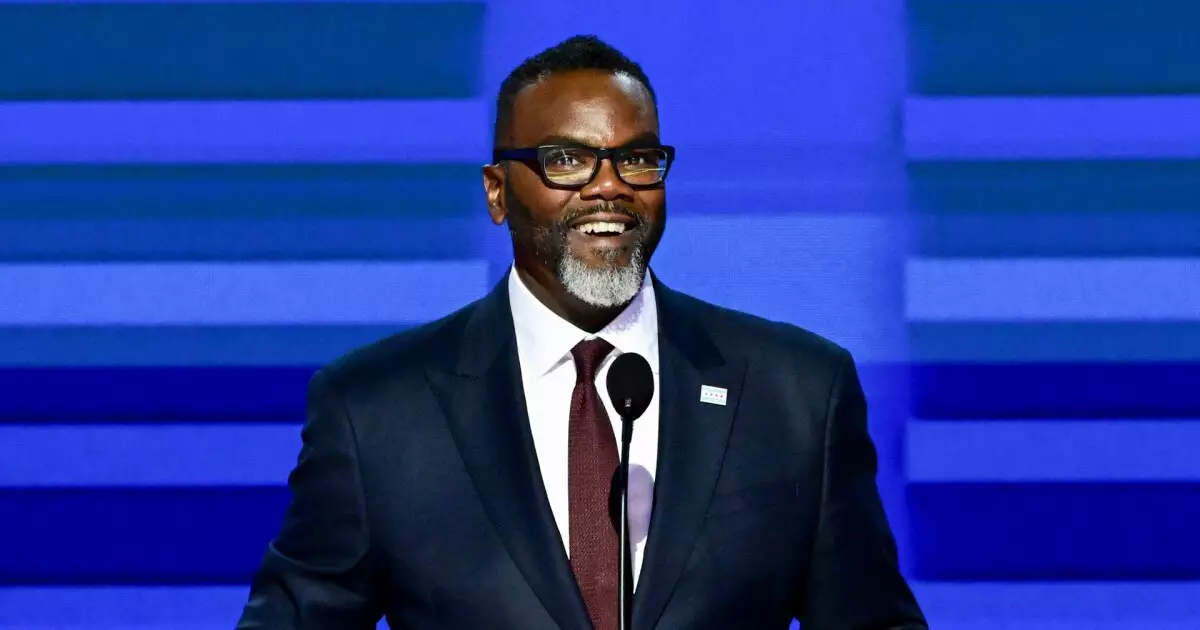The Chicago City Council has initiated a significant move to refinance $1.5 billion of the city’s outstanding debt, a decision laden with implications for its financial health and budgetary flexibility. While the council’s 35-12 vote reflects a strategic response to managing escalating fiscal pressures, concerns persist about the underlying structure of this refinancing and its potential long-term ramifications.
The Mechanics of the Refinancing Plan
Set to take place in the fourth quarter of 2024, the refinancing plan involves issuing approximately $850 million in General Obligation (GO) bonds, with about $500 million targeted for a tender offer. By executing this refinancing, the city anticipates reducing the average interest rate on its debt from 5.62% to 3.75%. For many, this appears to represent a financially sound maneuver, one that generates an estimated $110 million in present value savings. Mayor Brandon Johnson’s administration has framed this move as a commitment to prudent financial management, aiming to alleviate budgetary pressures while simultaneously preparing for future fiscal challenges.
However, the optimism within City Council meetings has collided with skepticism from financial analysts and various council members. Specific critiques focus on the financing’s structure and the potential for obscured fiscal realities. Municipal Market Analytics (MMA) has raised alarms regarding Chicago’s declining financial flexibility, indicating that the city’s decade-long progress in credit quality may be simultaneously yielding to a challenging landscape.
From the beginning, the path to the refinancing approval has not been straightforward. Earlier discussions were marred by attempts to defer the ordinance, demonstrating inherent tensions within council members regarding financial transparency and urgency. Alderman William Conway expressed confidence in the fiscal prudence of the refinancing, arguing that legally binding restrictions prevent the use of bond proceeds for anything other than cost-saving refinancing. However, opposition from certain council members, such as Alderman Raymond Lopez, highlighted persistent doubts, particularly concerning unutilized funds that could perpetuate broader financial issues.
Lopez’s comments reflect a sense of skepticism that resonates beyond individual disagreements. His concerns are amplified by broader inquiries into the potential for budgetary shortfalls that future administrations might inherit. The reluctance to embrace certain amendments raises questions about whether this restructuring is merely a postponement of inevitable fiscal difficulties.
The Call for Transparency
In the lead-up to the October 9 meeting vote, the transparency surrounding the refinancing came under the spotlight, with Illinois Comptroller Susana Mendoza urging council members to demand clarity about projected savings. Critics voiced a common worry: without intelligent and transparent accounting, the refinancing could obscure deeper fiscal realities. Mendoza emphasized the significance of showcasing the realism behind projected savings rather than relying on broad, unverified estimates.
The refinancing initiative reveals an intersection of fiscal necessity and political maneuvering in a city that has struggled with debt management. MMA has cautioned that if the refinancing resembles previous “scoop-and-toss” strategies—where current debt is pushed into the future, ostensibly to provide short-term relief—the city risks reinforcing a cycle of financial instability that could burden future budgets.
As the city proceeds with the refinancing initiative, the question remains: is it truly a long-term solution, or is it a temporary fix to an ongoing financial crisis? While immediate savings are appealing, observers emphasize the need for sustainable fiscal policies; without strategic structural reforms in spending and budget allocation, Chicago’s financial landscape may remain precariously balanced.
Fitch Ratings recently upgraded Chicago’s credit ratings to A-minus, suggesting an improved outlook. However, even positivity in ratings cannot mask underlying challenges. As interest rates fluctuate and expectations for economic performance alter, Chicago must pursue sustainable financial management practices rather than rely on one-time solutions.
To ensure true financial resilience, the emphasis must pivot from addressing immediate concerns to developing comprehensive strategies that promote long-term fiscal responsibility. As Chicago moves ahead with its debt refinancing plans, the balancing act of immediate benefits versus future fiscal health will remain a delicate dance for city leaders and the finance team tasked with navigating turbulent waters.
The recent refinancing plan offers both potential savings and complex challenges. The true measure of success will depend on transparency, prudent fiscal planning, and effective management that prioritizes sustainability over shortsighted gains, ultimately determining the trajectory of Chicago’s fiscal health in years to come.


Leave a Reply